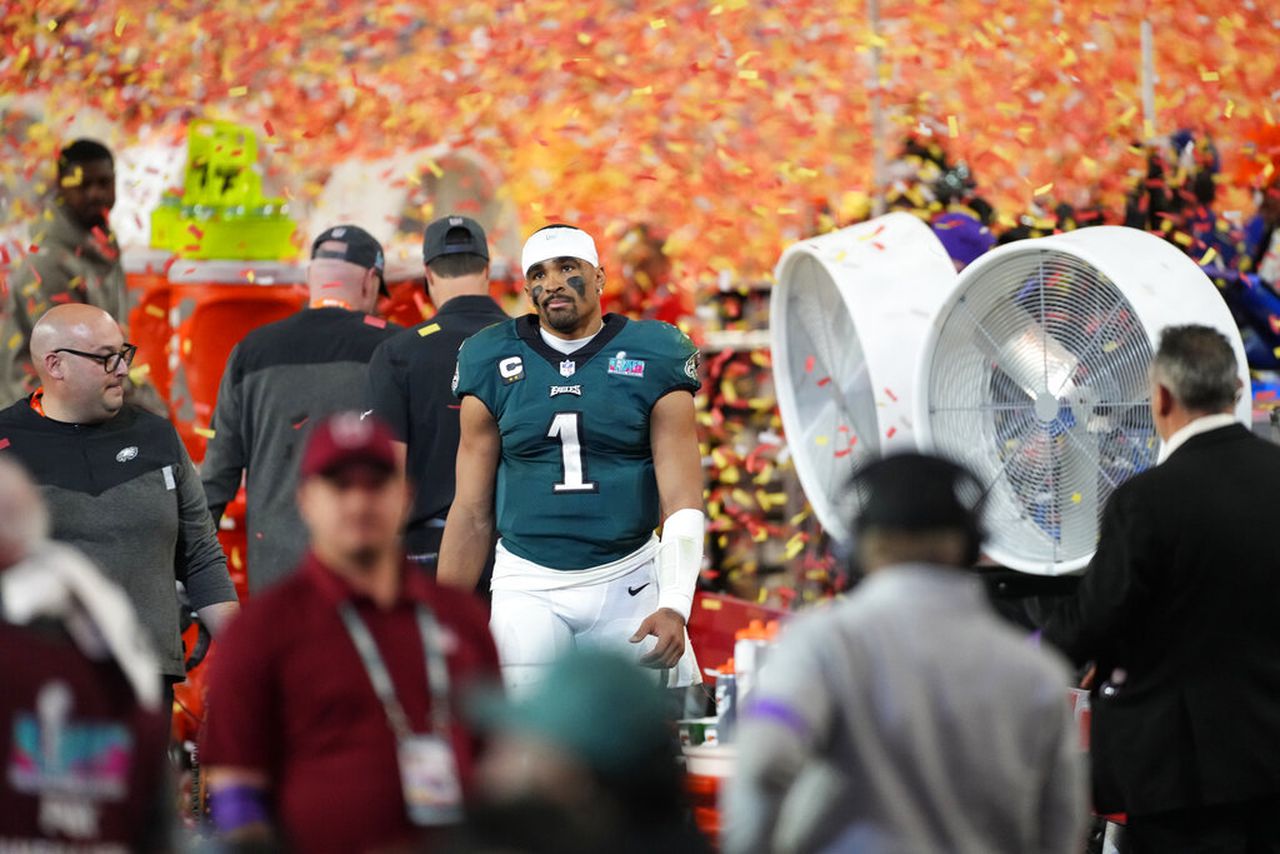Archibald: Referees are killing football
This is an opinion column.
You can call this a hot take. But it’s a simmering hot take that bubbled through the college bowl season and erupted during the Super Bowl, the most joyous football day in the world.
Wait wait. On further review we find that Super Bowl Sunday is in fact not the most joyous day of the year. After a 10-minute delay replay shows the NFL did not have complete control before it stepped out of bounds.
But boy, its foot was over the line.
We should have known the game was too far gone when every network had to hire a PR referee to call every time the rules became too difficult for professional football watchers and former players in the booth to comprehend.
Let’s be real, though. Those guys aren’t just there to talk about the rules. They’re on duty to justify calls, serve as apologists for inevitable mistakes, to humanize the herd of zebras on the field and countless others in the booth and beyond.
The joy is gone, like that DeVonta Smith catch in the Super Bowl when he purposefully and majestically pinned the ball to helmet while falling down, an elite athlete draped on top of him. It was wiped away, in the name of precision, after interminable delay and ironic imprecision over the definition of “incontrovertible visual evidence.”
Can you justify it? Sure. But why, when the justification is less precise than the play?
My editor – who as an Eagles fan deserves some blame for allowing this hot take to live – put it this way:
“When you have to slow it down frame by frame and hunt for evidence that your eyes were wrong, you have lost the plot.”
Preach.
Of course the Super Bowl call that will be remembered most is the game-deciding holding penalty in the final moment that ended a fantastic symphony on a sour note. Sure you can make a case that James Bradberry held a receiver on that play, but you can make such a call on just about any play.
When games are decided by arbitrary rules – referees on the field and in the booth parse every step a receiver makes but can’t examine judgment calls made by officials – it’s not one team or another that loses. It’s the game.
I swear, it’s just like those tiny towns that hire vast fleets of police cars to sit along the highways. They’ve got the manpower, the authority, and their own definition of justice. They’re gonna get you for something, for driving on the left side of the road or for pass interference. They’re gonna stop you, to justify their existence, with unmarked police cruisers or head-scratching booth reviews.
I know, I know. Comparing overzealous policing to a game is no doubt offensive. But so is killing a sport under a microscope. Sure you can see every tiny germ, but you can’t see the body, or the harm that is being done to it.
Every big game, no matter the level, has such moments. If I were a Michigan fan I’d still be purple with rage about two reversals in the College Football Playoff semifinal loss to TCU.
There was a ridiculous replay reversal of a touchdown, and a last-minute reversal of a targeting call. Even the PR ref on that broadcast reached the opposite conclusion as the booth. Both times.
Which, to an unbiased observer, would seem to make “incontrovertible” impossible.
Catches and field position and footsteps are parsed to death, because referees can pass the buck by focusing on the players and the stripes on the field. But officiating mistakes bear none of that scrutiny. Holding calls, pass interference calls, non-calls change the game.
Grievous facemasks can go uncalled, and can’t be corrected by replay, but on critical downs the ball can be spotted from above with the precision of a snowball fight.
It’s a farce, to make you think the game is precise. Don’t ever make the mistake of thinking it fair.
John Archibald is a Pulitzer Prize-winning columnist for AL.com.
